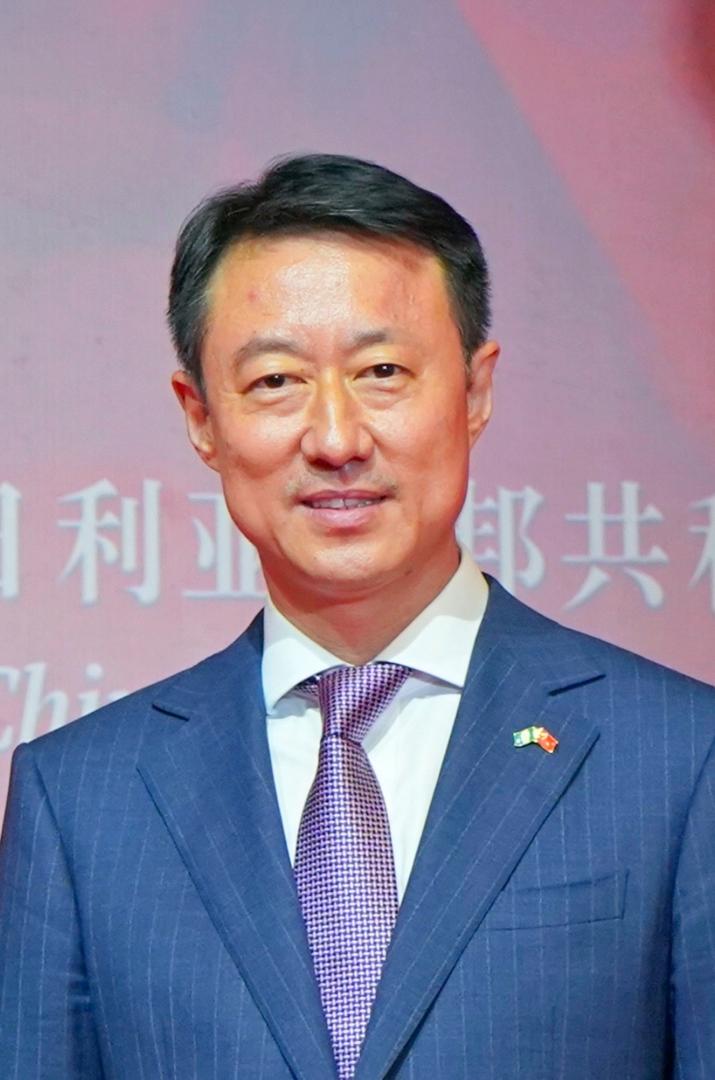By Bavoriat Clara
The Chinese government has unveiled a new blueprint for reforming and strengthening international cooperation with the announcement of the Global Governance Initiative (GGI), proposed by President Xi Jinping on September 1, 2025, at the Shanghai Cooperation Organization Plus Meeting in Tianjin, China.
In a statement issued in Abuja, the Chinese Ambassador to Nigeria, H.E. Yu Dunhai, described the initiative as a timely response to the turbulence and transformation facing the global community. He said the GGI provides a comprehensive framework for building a more equitable and just world order by injecting “Chinese wisdom” and practical solutions into global governance debates.
According to Ambassador Yu, the initiative is anchored on five major principles: respect for sovereign equality, adherence to international law, the promotion of multilateralism, adoption of a people-centered approach, and an emphasis on practical action and results. He explained that these guiding principles seek to ensure that all countries—regardless of size, strength, or wealth—participate in and benefit from global governance equally, while avoiding unilateralism and double standards.
The envoy stressed that the GGI is closely aligned with Africa’s priorities, particularly in light of the continent’s central role as home to 54 United Nations member states and its importance in global multipolarity. He described Nigeria as a key partner, noting that the country’s size, population, and economic strength make it a critical engine of growth in Africa and an influential voice for the Global South.
Tracing the historical foundation of China-Africa cooperation, Ambassador Yu recalled Nigeria’s pivotal role in 1971 when it cast its vote to restore the lawful seat of the People’s Republic of China at the United Nations. He also highlighted Africa’s partnership with China in promoting reforms within the UN, such as the principle of “common but differentiated responsibilities” in climate change negotiations, as well as China’s support for correcting Africa’s under-representation in the Security Council.
The ambassador noted that China played a crucial role in advocating for the African Union’s admission to the G20, which became a reality in 2023, and expressed continued support for Africa’s stronger voice in international affairs. He emphasized that this commitment was further demonstrated during the 2024 Beijing Summit of the Forum on China-Africa Cooperation (FOCAC), which produced the Beijing Declaration and reaffirmed China’s support for Africa’s role in global governance.
Highlighting the importance of Nigeria in China’s Africa policy, Yu Dunhai recalled President Bola Ahmed Tinubu’s state visit to China in September 2024, where both countries elevated their bilateral ties to a comprehensive strategic partnership. He said the past year had seen significant progress in political trust, economic cooperation, and joint engagement in international forums. “China and Nigeria are setting an exemplary model for South-South cooperation,” he affirmed.
The ambassador explained that China’s approach to cooperation with Africa, through mechanisms such as FOCAC, is built on sincerity, mutual benefit, and action-oriented plans. From the “Ten Cooperation Plans” and “Eight Major Initiatives” to the more recent “Nine Programs” and “Ten Partnership Actions,” China’s assistance has targeted Africa’s priority areas such as infrastructure development, agriculture, healthcare, and capacity building. He emphasized that this cooperation comes with no political strings attached and is designed to strengthen Africa’s capacity for self-reliant development.
Placing the GGI in context, Ambassador Yu noted that it complements three other major initiatives proposed by President Xi, the Global Development Initiative (GDI), the Global Security Initiative (GSI), and the Global Civilization Initiative (GCI). Together, he said, the four form the pillars of a new framework to build “a community with a shared future for mankind.” While the GDI focuses on development, the GSI addresses peace and security, and the GCI promotes cultural dialogue, the GGI serves as the guiding principle for reforming global governance systems and institutions.
Looking forward, the envoy stressed that China will continue to work closely with Africa and Nigeria to advance reforms in the United Nations, international financial institutions, and other multilateral platforms. He identified climate change, artificial intelligence, cyberspace governance, trade, and outer space as priority areas for cooperation under the GGI framework.
“The successful practices of China-Africa and China-Nigeria cooperation demonstrate that the Global Governance Initiative embodies strong vitality and broad prospects for development,” he said. “Moving forward, China will continue to stand shoulder to shoulder with African countries, especially our Nigerian friends, to jointly address global challenges and work toward building a community with a shared future for mankind.”
With 2025 also marking the 80th anniversary of the United Nations and the 25th anniversary of FOCAC, observers note that the unveiling of the GGI underscores China’s commitment to playing a leading role in shaping the evolving global order, with Africa and Nigeria in particular at the heart of that vision.
